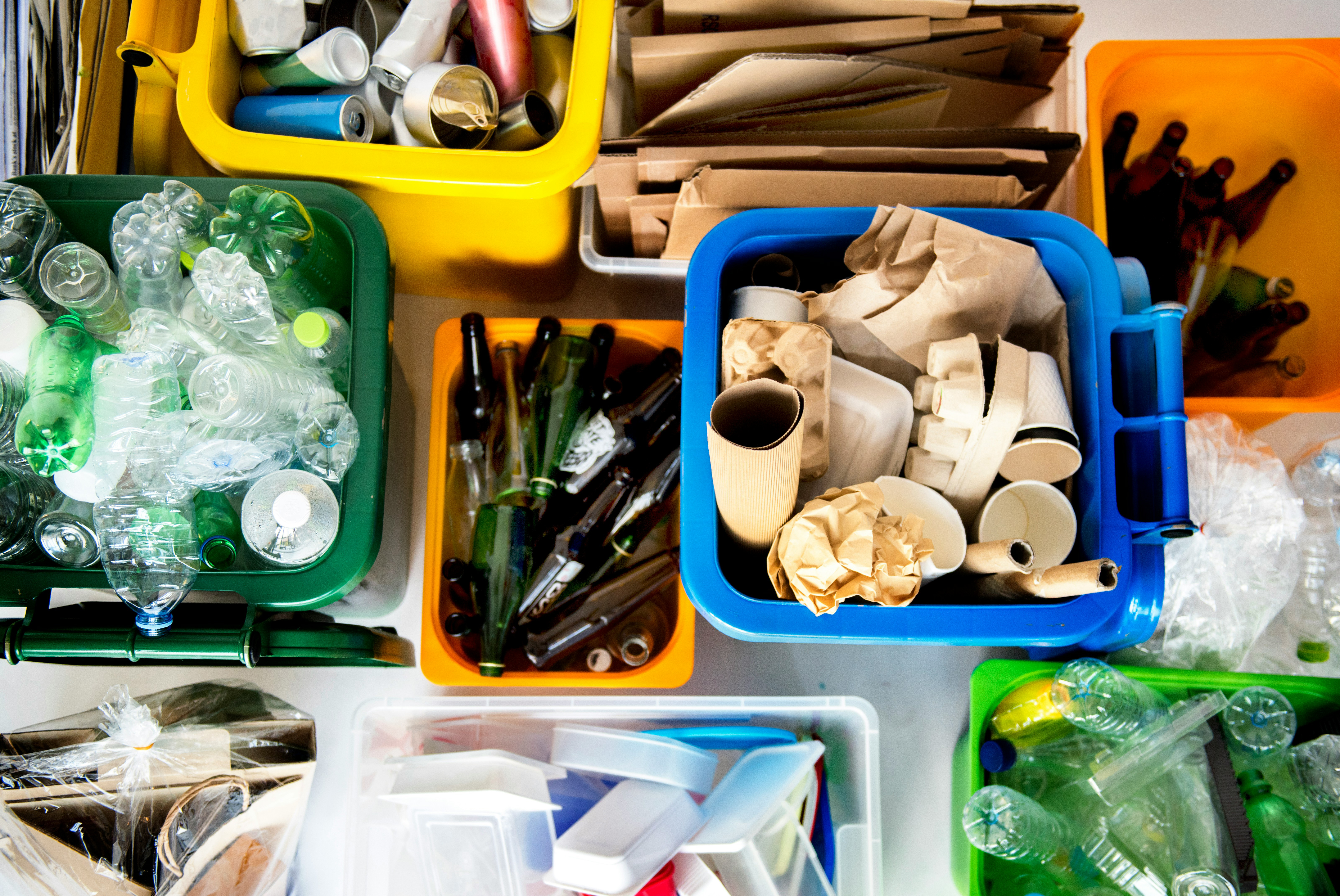Goal 3: The Nordic countries will reduce their ecological footprint through a circular economy and by contributing towards the reduction of harmful chemicals and pollutants both globally and locally
The Nordic countries still do not live within the limits of the planet and need to reduce their negative impact on the environment through the efficient and circular use of resources. Nordic countries generally enjoy a high level of competitiveness within the EU and globally, in part because of our high environmental requirements, active companies and engaged citizens. It is important that the Nordic Region continue to work to promote the ambitions of the business sector in relation to the environment and climate. In this way, we can promote prosperity, welfare and the environment. We shall continue to co-operate around the development of a circular economy by preventing the presence of harmful substances, proposing waste-prevention measures, influencing product policies and by participating actively in the development of new financing solutions and circular business models. Voluntary initiatives such as officially recognised eco-labels are important and can help guide consumers and companies that want to be at the forefront of change. The Swan EcoLabel is a powerful, well-known and established tool that can help to drive forward the green transition in the Nordic Region.
We must continue to work together and build further upon what has already been done to reduce the harmful effects that chemicals and pollutants can have on humans and the environment. In collaboration with citizens and businesses, we must continue our work in relation to behavioural changes, legislation, standardisation, knowledge-based facts, innovation and communication. Combating plastic pollution in the Nordic Region, globally and locally must continue to be a priority for Nordic co-operation. Environmental criminality, such as the illegal handling of waste, is another area in which co-operation will likely need to be reinforced going forward.


Sub-goal 3.1: We will contribute a high level of ambition for negotiations and actively implement international agreements concerning chemicals, waste, pollutants, plastic and similar.
Nordic co-operation must be a strong driving force in international processes. We shall continue down the work already begun in regards to the Global Framework on Chemicals, marine littering and negotiations around a global agreement against plastic pollution. The co-operation shall continue to contribute actively towards the development and implementation of EU initiatives within areas such as product legislation and the prevention of waste. Our co-operation around pollutants and resource efficiency must be made more visible and used to contribute towards the implementation of international agreements and processes.
Sub-goal 3.2: We shall promote circular solutions that encourage citizens to consume sustainably and companies to design and produce in a resource-efficient manner.
Circular economies help to limit the use of natural resources and thus they have a positive impact on nature. The transition to a circular economy will require changes in both design and production, as well as our choice of production methods and consumption patterns. It will also require incentives to promote business models that contribute towards longer product lifespans, reuse and recycling and the effective communication and dissemination of information. Financial and regulatory obstacles need to be curtailed so that circular business models can compete on the same terms/playing field as traditional, linear business models.
Nordic co-operation must promote the development of innovative solutions and cross-border collaboration whereby a common Nordic market can enable the development of reuse and recycling practices, not least within the construction sector. Important instruments here will include public procurement, eco-labels, financial incentives, training, eco-design and manufacturer responsibility. Construction and demolition waste, plastic, textiles, critical raw materials and hazardous waste are all particularly prioritised areas.
Sub-goal 3.3: We will reduce the risks to humans and the environment of chemical substances and products by phasing out harmful chemicals, developing new knowledge and informing key target groups.
Achieving a circular economy requires cycles to be free of toxins. The Nordic Region has a long tradition of successful collaboration around the issue of chemicals. Nordic co-operation must therefore continue its work to prevent the presence of harmful substances in products and to ensure that problematic substances do not occur in the circular economy. We shall promote the manufacture of products and goods that are safe and sustainable by design. We shall continue to develop our co-operation by placing focus on minimising the use of harmful substances, collaborating around the implementation of EU legislation, oversight, risk assessments and by sharing experiences of methods and data from screening and monitoring activities, such as those which look at human health. Issues relating to chemicals which are regulated in relevant legislation, such as chemical legislation but also legislation related to air and water quality, the presence of chemicals in food products and antibiotic resistance, should also be taken into consideration as part of this work.
Sub-goal 3.4: We will contribute towards the greater visualisation of how Nordic citizens can live ecologically, socially and financially sustainable lives within the limits of our planet.
Nordic citizens are keen to contribute towards sustainable development. The environment and climate sector needs to highlight and communicate values such as access to vibrant nature and heritage environments, clean oceans, a society free of harmful chemicals and pollutants, and security despite the effects of climate change. We must also show how individual citizens and companies can make sustainable decisions with regards to the climate and environment.